

1 Volume 7 - Issue 1 May 2023
Editor in Chief, Reem Farhat
Arabic Editor, Hiba B’irat
Copy Editor, Marwa Elessawy
Layout Editor, Fadia Alagha
Co-Advisor, Abire Sabbagh
Advisor, Rania Mustafa
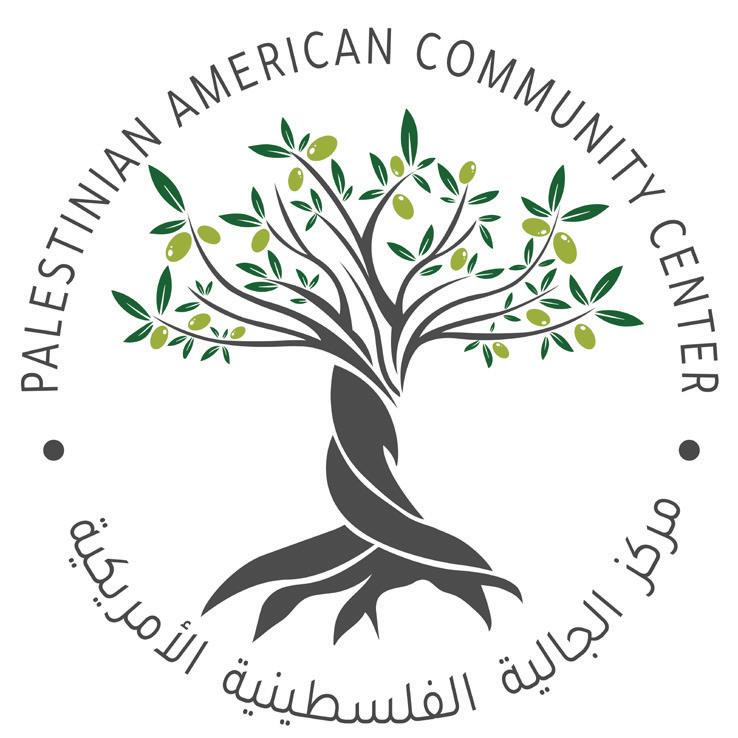
We’d like to extend a special thank you to Amjad Al-Siyabi for his beautiful artwork on the cover! Amjad Al-Siyabi is an Omani self-taught artist. He graduated from City of Glasgow College in 2017 with a degree in Marine Engineering. He is very passionate about Oman’s diverse nature, culture and heritage most of his artworks aim to inspire and explore the beauty of Oman trying to make his mark in the field of art. He loves to create awareness through arts and share knowledge about Palestine, Amjad’s true joy is to see his artworks featured to the world. You can follow his work on Instagram @amjedalsiyabi.
We’d also like to extend a special thank you to Marwa Elessawy for her assistance in editing!
2
388 Lakeview Ave Clifton, NJ 07011 973-253-6145
Abire Sabbagh Nada Abbasi Brian Ford Ragheda Hasan
3 Table of Contents Remember Who You Are, Who We Are ةيبعش لاثمأ Interconnected “Where I Am From” Daughter of Jerusalem تيفلس Barry Mahmoud on the Importance of Speaking Up I’m Sorry #SpeakUp: An Ally’s Perspective I’ll Speak Up For You Ya Baladi 06. 08. 09. 10. 11. 12. 13. 16. 17. 20. Lialie Mustafa ةنوازغ ءاجر Marwa Elessawy Ghada
بطقلا فسوي
Ajaj Nada Abbasi
This issue, our theme was “speak up.” We encouraged our contributors to reflect on the times they have faced identity based discrimination and harassment. For so long, as Palestinians, Arabs, and for those of us also facing Islamophobia, we’ve experienced discrimination, hate, and ignorance at the intersection of our identities. Too often, we’ve brushed those instances under the rug and forced ourselves to move on. But these situations are not normal and not okay. We hope that by hearing our contributor’s stories shedding light on these instances, we can empower ourselves to stand up and speak up against such injustice.
The work in this issue is a result of the beautiful artistry and creativity in our community. We are incredibly grateful to all of our contributors for their work! We are also thankful sponsors and the PACC Board for supporting this magazine each issue. Lastly, thank you, reader, for supporting Falastin each and every issue. We hope these pieces inspire you to join in our resistance through art by sharing your stories with Falastin and invite you to share this magazine with your coworkers and classmates.
Letter from the Palestine Education Director
I want to start off by introducing myself; my name is Abire Sabbagh and I am honored to be taking a more active role in PACC’s Falastin Magazine. Since I first got involved with PACC a couple of years ago, I admired the work that the Falastin staff does to promote literary work that centers and celebrates Palestinian identity. We must remember that the goal of settler-colonialism is not only to occupy physical land, but to also control and erase narratives and memory. Whether by working on or supporting this magazine, we are all part of a labor of love that uplifts Palestine.
One of PACC’s consistent goals is to empower our community to share their truth. In the last year especially, we have witnessed an increase in hostility towards pro-Palestine student activism, increased fear-mongering efforts through websites like Canary Mission, and heighted conflations of anti-Zionism with definitions of anti-semitism like that proposed by International Holocaust Remembrance Association. Our frustration with such repression against Palestinian activism and advocacy inspired our theme for this issue. The silencing of our voices cannot be normalized. We hope that this issue encourages others beyond our community to keep speaking up- until freedom.
Congratulations to our Falastin staff for launching the first issue of our seventh volume! I am so proud of Falastin and everything it stands for! Thank you to our sponsors for making this possible. Thank you to our Board of Directors for your continuous support! Thank you to our Falastin staff for their dedication and hard work! Thank you for reading Falastin and supporting PACC!
Abire Sabbagh PACC Palestine Education Director
4
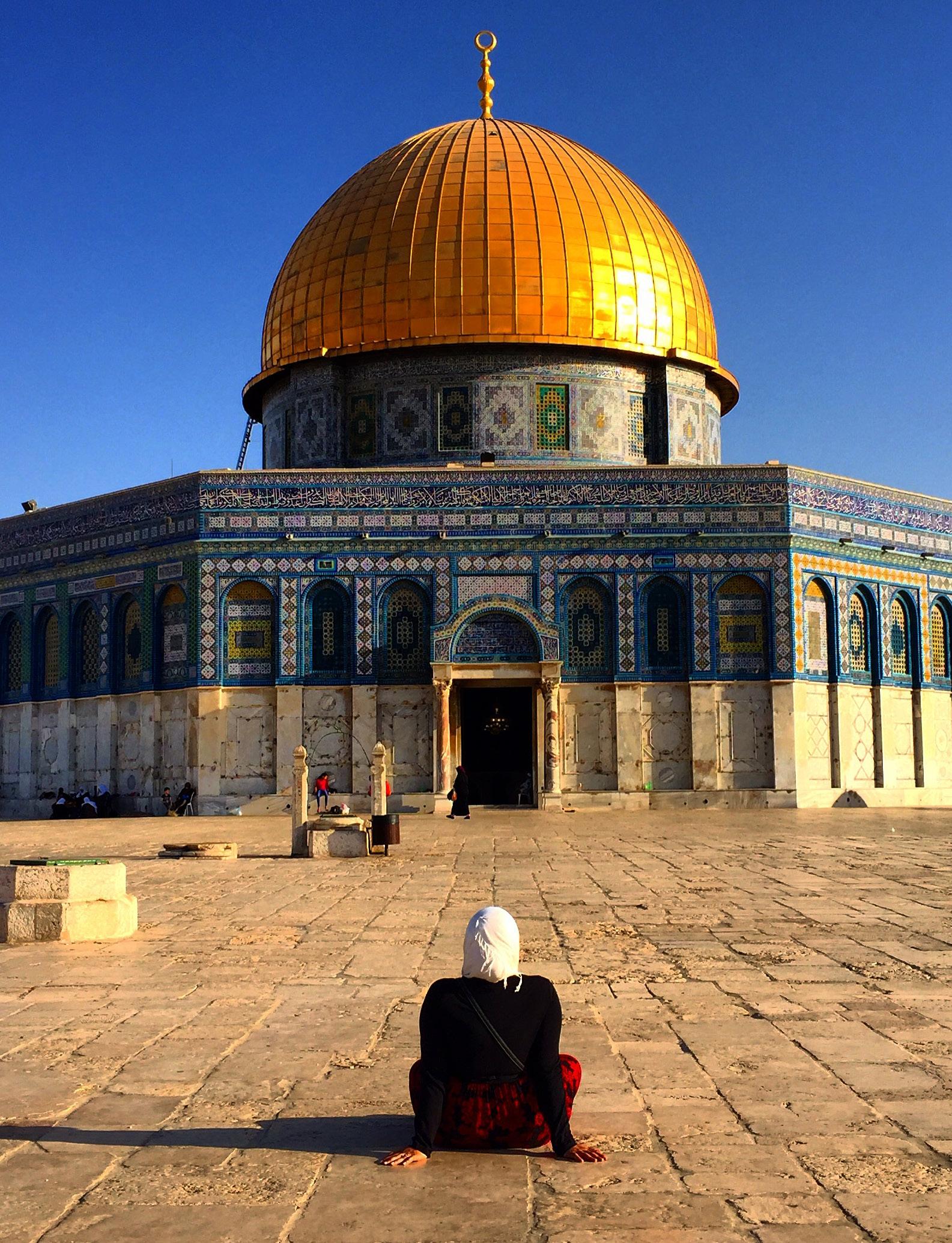
5
Photo taken by Rania Mustafa
IG: @raniamustafa1
Remember Who You Are, Who We Are
Lialie Mustafa
Al-Khalil has always been uncharted territory for me. I had been lucky enough to be able to travel across all of Palestine and see different cities and villages. Now this privileged Palestinian-American who held only her US passport was going to walk through a checkpoint for the first time. Driving through a checkpoint and constantly being pulled over by occupation forces has been dehumanizing enough, but this was going to be an unprecedented experience with the occupation. Approaching the old city of Al-Khalil was more than a heartbreaking experience; a part of this journey felt like it crushed my soul. I was en route to masjid Al-Ibrahimi, the same place where 29 Palestinians were shot dead, while in prostration to their Lord, by an individual whose mind was trained to kill. This was an unsettling thought as I passed by heavily armed Israeli occupation soldiers who were standing against the walls of the old city and waiting to attack at any given minute.
As I approached the first checkpoint to enter the masjid, I felt my face turn almost grey and my heart drop down to my feet. Although I was surrounded by a group of people trying to pass the checkpoint, I felt completely vulnerable and alone. I was looking at the turnstiles ahead of me. I was losing focus while waiting for the green light that would allow me to continue walking through the checkpoint. I remember an old lady and her husband standing in front of me and turning around to see my face and telling me, “They only want to break your spirit girl, remember who you are, who we are, we are Palestinian, be strong, put your head up.”
“Go, just go,” was the only thought going through my head as I pressed those cold metal bars to open the door to the next checkpoint. It was around 90 degrees but felt like negative 10 degrees once I laid my hands on those bars. Dehumanizing. I am a very talkative person, always willing to make a joke or laugh. At
that moment, however, I just remember standing still with a blank stare as my group approached the stairs to finally enter the masjid. One of my group members asked me if I was okay, but I had never felt more violated in my life — on my own land. I felt one hot tear roll down my face, but quickly wiped it away as I remembered what the old lady had told me before, “Remember who you are, you are Palestinian.”
While walking through the masjid, I first saw, on my left, a pile of rugs stacked on top of each other. These are the same rugs used by the 29 Palestinians who died while praying, and are left as a remembrance of their souls and what the occupation has done to Palestinians. As I walked towards Maqam Ibrahim (Alahi As-Salaam) and looked through the green bars, I remember seeing another side of the masjid that was shared with Israeli settlers, — the masjid was split for Jews and Muslims. Standing on the other side, a young Jewish girl with blonde hair and a group of other children around the age of ten were staring and pointing at me through the bars. I remember thinking to myself, “I wonder if this child even has a clue of what is going on here.” Out of frustration from this thought, I walked away thinking, “Of course she has no clue, what kind of thought even is this, Zionism is ingrained within these children’s minds from such a young age.”
As I exited the masjid, it was impossible not to feel the suffocating impact that the occupation has on AlKhalil, especially the old city grounds surrounding the masjid. Two words I thought of most during this trip were suffocating and dehumanizing. Regardless, I will always remember, “They only want to break your spirit girl, remember who you are, who we are, we are Palestinian, be strong, put your head up.”
6
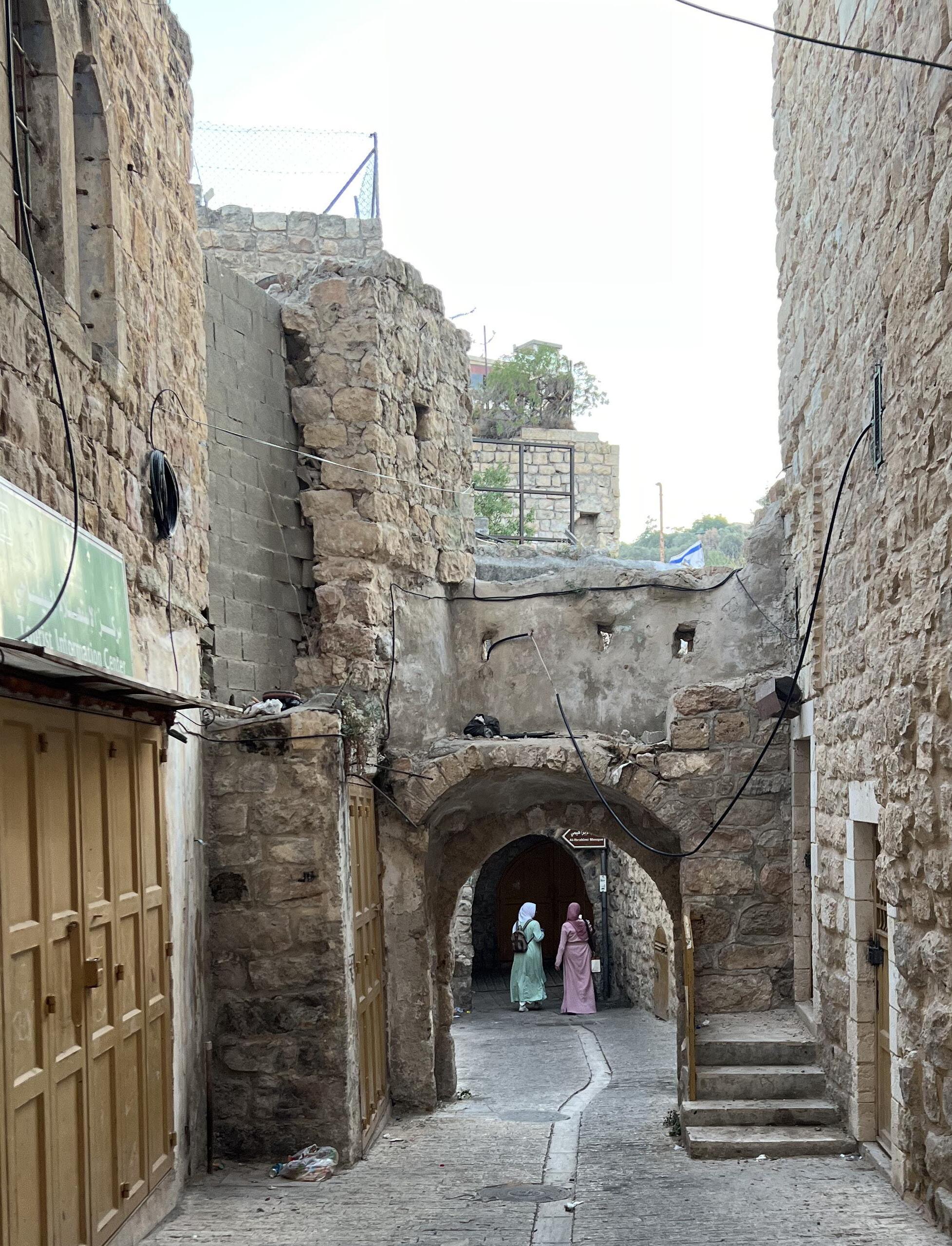
7
Photo taken by Rania Mustafa
IG: @raniamustafa1
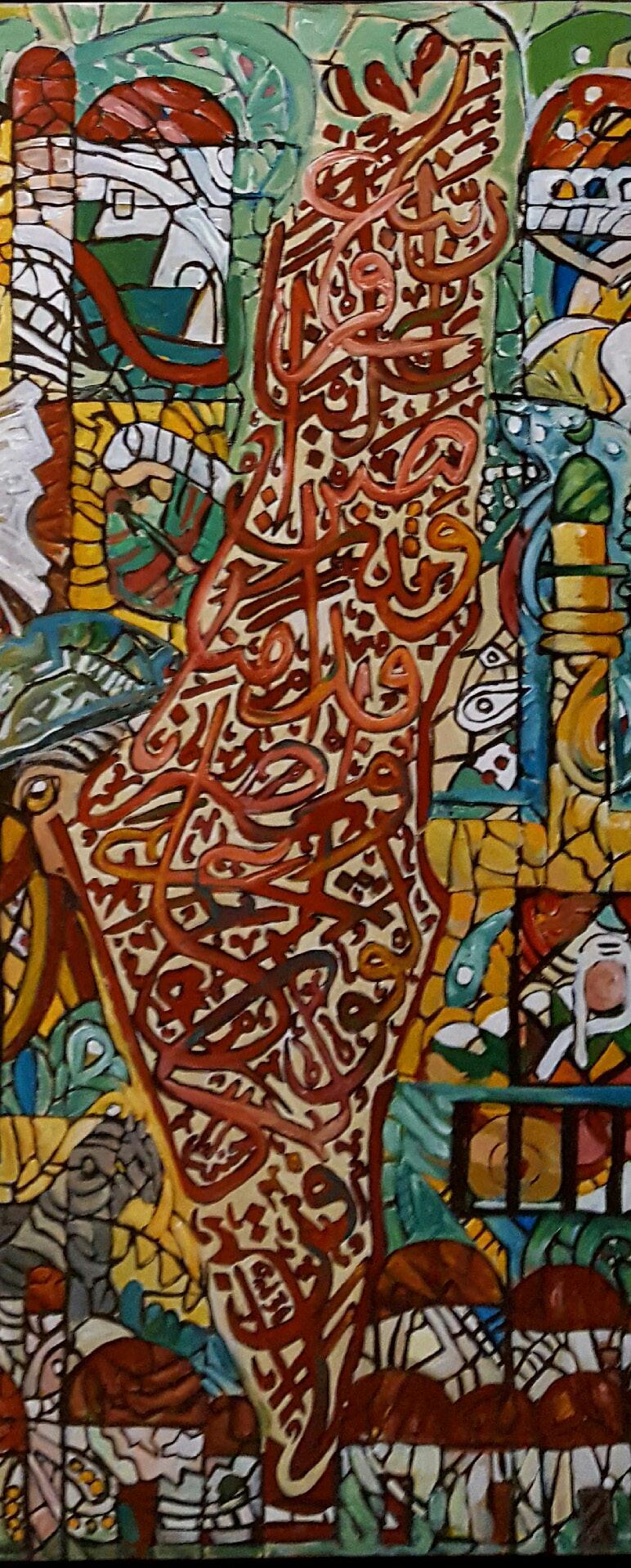
8 ناسين رهش يف ةيبعش لاثمأ ةنوازغ ءاجر اهربع متي يتلا مكحلاو لاثملأاب لفاح ينيطسلفلا يبعشلا ثارتلا ءيشلا ،ةطيحملا ةيئيبلا تاريغتلاو سقطلا لاوحأ فيصوت ،ةعارزلا مساومب سقطلا طابترلا ةصاخب ،ةبرجتلا هجتنت يذلا يعارز عمتجم اساسأ ينيطسلفلا عمتجملاو ةيبعشلا لاثملأا نم ديدعلا دجوت ،ناسين رهش لوخد نعو اهنم راتخن ،ةيبرعلا لودلا ضعب عم اهيف كرتشي يتلا ةينيطسلفلا ناسنإ هيف مشعت لا ..ناسين يف نسل نإ كراد كيبابش حتفاو ..كران يفطا ناسين يف ناك ام نيو ةديصحلا ..ناسين يف لحم هيلاتو ..لحو راهنلا لوأ ناسين يف سوبللاو اطغلا سانلا ففخبو ..سورع ايندلا ريصتب ناسين يف ناصيصلا سقفتب ناسين يف ناسنإ لك افديب ناسين يف اهلحم ناسينو ..اهلحف نوناك ةعارزلاب ةقلعتملا لامعلأا يأ - نادفلاو ةدعلا بظ ناسين يف يهتنت ةيوتشلا لاس ليس لك ىوست ..ناسين يف ةطقن لك ناسنلإل ةحصو ريخ ناسين رطم ناف قرع لك ناسين ةرطم نامثأ اهلإ ام رهاوج ناسين يف ةرطملا ناسنلإاو ضرلأا ييحتب ناسين ةرطم ناصيصلاع دقارلاو نادفلاو ةكسلا ىوست ناسين ةرطم نايرعلا يفدبو ناعوجلا يمعطب ناسين
Artwork by Nawal Abderahim
IG: @nawalabderahimart
Interconnected Marwa Elessawy
How can we see past these borders
When we are subjects of a contract we did not contrive, When the quotidian has become a cataract Clouding our consciousness?
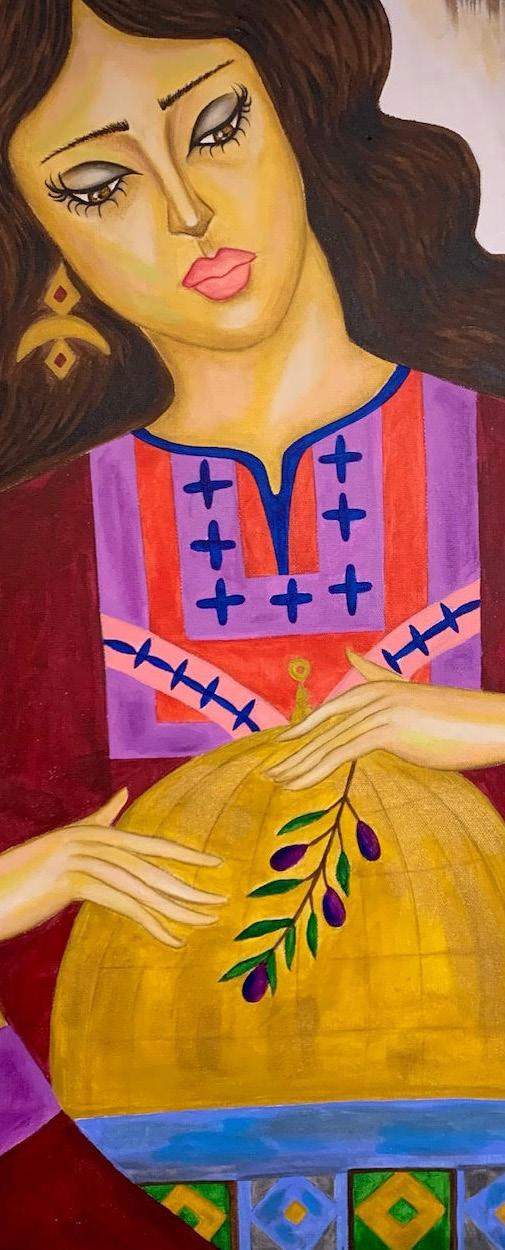
We guide our hands under the illusion of choice, Yet enable fingers braided with rifle triggers for bullets to lodge organs, Enable white phosphorus and depleted uranium to swallow lungs, Enable downpouring bombs that make thunder only appear as a flick of a candle.
If all labor is extracted, Until our backs twinge, our heads throb, Until we can no longer embrace our children the way we used to,
Then how can we muster any strength to unearth the bodies perceived as expendable?
How can we see past these borders
When we must sell our labor tomorrow?
9
Artwork by Melina Sobe IG: @melinasobi.art
“Where I Am From”
Ghada Ajaj
I am from checkpoints, and a stolen land, settlements with the upper hand.
Genocide and a blind eye, the partition wall, and a loud cry.
It was ‘67, and ‘48, and Palestine had the mandate. A holy land, in a holy place, a battleground with an ill fate.
Dead bodies were laid here, and religious prayers are made here.
Borderlines have a new map that turned Gaza into a death trap.
Cease fires and casualties led to clashes and refugees. There are no jobs, and there is little water, lost lives, and a new order.
From the West Bank to the Dead Sea, the occupation continues to be.
Human rights don’t exist here, but brave boys still resist here.
I came from protests and goat herds, politicians with null words.
From resolutions and new proposals to the Oslo Accords at the UN’s disposal, I came from fig trees and olive branches where peace treaties had NO chances.
I saw conflicts and new tricks, land grabs and politics. So, with great hope and a long yearning our keys are intact and we shall return.
A land for peace with no blood or war, a land of hope across the shore.
Well, it’s been six days, and almost seventy years, and the Palestinians are still here.

10
Artwork by Amjad Al-Siyabi IG: @amjedalsiyabi
Daughter of Jerusalem
 Nada Abbasi
Nada Abbasi
Excuse me, Mr. Foreigner, do you truly not know me? You really do not recognize me?
My Natalie Woods eyes deceived you, just as you have allowed yourself to be deceived.
You see Mr. Foreigner, I am a Daughter of Jerusalem
In 1948, you pounded your shiny boots on my Holy Land.
As a little girl, I watched as you torched homes and fired holes in my friend’s fathers. You don’t remember, do you? I understand. It is a piece of history that has been buried for over seventyfive years.
Only those who dare to know the truth can see it, otherwise it’s irrelevant, isn’t it?
Years later, in my new home of America, I notice the nuns at my daughter’s Catholic School smile widely at me and sometimes even marvel at me when I pick up my girls at dismissal.
They have tender hearts and incessantly ask me, “Oh, Daughter of Jerusalem tell us about Jerusalem, tell us about Bethlehem.” You see, they know Jesus comes from my land.
Yet, Mr. Foreigner, you humble me. Do I know Christmas you ask?
Ha ha ha
You poor soul Mr. Foreigner, Jesus, Abraham and Muhammad are from my part of the world, not yours. So, tell me Mr. Foreigner, since your massive take over, have you ever eaten an olive from Palestine? Have you ever drank mint with tea or eaten a meat pie?
I wondered all these years Mr. Foreigner if you ever realized, just for a flashing second, that you stripped my children of their birthright to be born in their homeland?
Never mind, really, I am amazed to see that since then, you walk the earth carefree with a broad toothy smile.
I almost admire that about you,
You saw the radiance and glory of Jerusalem and desired to have her, capture her, to make her yours, didn’t you?
Mr. Foreigner, I am sorry I am not trying to be cheeky, but you made me laugh again.
You see a Daughter of Jerusalem knows that Jerusalem cannot be captured or seized. She belongs to you, me, and them. She belongs to the three of us. Who are the three of us you ask, hmmm that’s for you to think about Mr. Foreigner.
11
Artwork by Lameess Mehanna IG: @lmoneypaintz


12 بطقلا فسوي ةسدع تيفلس بطقلا فسوي ةفضلا يف عقت .تيفلس ةظفاحم زكرمو ةينيطسلف ةنيدم تيفلس ،نويناعنكلا اهسسأ .مك ٦٢ يلاوحب سدقلا نم لامشلا ىلإ ةيبرغلا ١٠،٩١١ وحن اهنكسيو ،²مك ٢٣.٠٦٢ يلاوح اهتحاسم غلبتو ةيمهأب ةنيدملا زاتمت .٢٠١٧ ماعل ناكسلا دادعت قفو ةمسن زيكرتلا نم سدقلا ةنيدم دعب ةيناثلا دعت ذإ ،ةيسايسو ةيعارز ةرثكل نوتيزلا ةنيدم ءامسأب اضيأ فرعت .يليئارسلإا يناطيتسلاا ةيندرلأا ةرادلإا للاخ اهييعويش ةرثكل ىرغصلا وكسومو اهنوتيز ةيبرغلا ةفضلل اهلوح يذلا يناطيربلا بادتنلاا ةلظم تحت نيطسلف يقاب عم تيقب ١٩٤٥ ماع يف داع مث راتخم ةرمإ تحت اهعضو مث ةيرق ىلإ ةفضلل ةيندرلأا ةرادلإا تحنم ،١٩٥٥ ماع يف .ةيرق ىلإ اهداعأو ازكرم اهتداعأ ١٩٦٥ ماع يفو ،ةيدلب ةناكم تيفلس ةيبرغلا تحت تيفلس تعقو .سلبان ءاضق نمض تاينيعامجلا ةيحانل ءاول نمض ايرادإ اهعبتأ يذلا ١٩٦٧ ماع يليئارسلإا للاتحلاا ةينيطسلفلا ةينطولا ةطلسلا اهتملست ١٩٩٥ ربوتكأ يف ،مركلوط اهنم تذختاو اباط يف ةعقوملا ٢ ولسوأ ةيقافتا تامهافت نمض تيفلس ةظفاحمل ةمصاع تدع ذإ ،اهيف نوتيزلاو تايزوللا راجشأ ةرثكب تيفلس رهتشت نوتيزلا تيز اتجتنأ يتلا سلبان قجنس يف نيتيرق ربكأ نم ةدحاو
Artwork by Nisrin Shahin IG: @Nisrin.Shahin
Barry Mahmoud on the Importance of Speaking Up Abire
Sabbagh
Barry Mahmoud, 19, is a Palestinian American, a longtime PACC community member and volunteer, and a college student studying policy at Montclair State University. He was previously a student at Rutgers–News Brunswick, where he served as co-president of the Students for Justice in Palestine (SJP) chapter. During his tenure, the SJP chapter faced undue criticism and a barrage of attacks from other student groups and the Rutgers administration. We reached out to Barry for this issue “Speak Up” to hear about his experience as an ardent student advocate for Palestine
1. When did you start organizing for Palestine?
I started volunteering, interning, and attending events at PACC in 2015. But I became involved more intensely in student activism between 2020-2021 during my senior year in high school. People in Sheikh Jarrah were facing threats of displacement and being attacked at Al Aqsa mosque. Israeli airstrikes were also targeting Gaza.
2. Can you explain the situation at Rutgers New Brunswick when you were still a student there?
It was the Spring semester, in April 2022, and I was co-president of SJP. We organized a protest in response to the attacks on Al-Aqsa mosque and attacks on other Palestinian cities by the Israeli Offensive Forces. The rally was held at Brower Commons, an active area on campus, and about 200 people attended. We invited speakers from various organizations and campus communities. Initially, it seemed like there were no issues or incidents at the rally.
But after the rally was over, SJP board members learned there was an altercation between members who attended the rally and members of the AEPi fraternity (a Jewish fraternity), which is around the block from where the protest was held. Since the altercation did not take place at the rally, we did not assume it would affect SJP, nor did we feel the need to get involved. Shortly after, Rutgers administration released a statement condemning an anti-Semitic
attack on the AEPi frat and implicated SJP in the incident by naming the date and time of the SJP rally and protest. Local media outlets started covering this incident and remarked on the SJP rally and organization in their coverage as well.
3. What allegations were made towards SJP?
Anti-semitism.org posted a video clip of people waving Palestinian flags in front AEPi when the rally was going on with the caption, “Members of AEPi were being harassed with anti-Semitic slurs and being called terrorists and baby killers.” Although attendants of the rally did pass by the frat house, where AEPi members were standing outside observing the rally, the attendees were not affiliated or known by SJP or the larger New Brunswick community. However, SJP was still being held accountable for the incident. Without any due process, SJP was not given the opportunity to communicate its perspective of the incident with the administration.
Coincidentally, the day after the rally, AEPi was egged and SJP was also accused of being involved. A member of ABC 7 News called a past SJP board member and left a voicemail accusing SJP of egging the frat house, calling pro-Palestine supporters horrific names, and asking SJP members to go to AEPi house to be interviewed. Various journalists who reached out to SJP online insinuated that SJP is an anti-Semitic organization and supports terrorism. Some called for the university to defund SJP.
13
4. What do you think is the goal of such allegations, especially when they happen at the heels of Palestinian protests?
When AEPi reported the incident to Rutgers Police Department and were making appearances on media outlets, supporters of Israel were victimizing themselves and playing into the narrative that SJP is an aggressive and dangerous organization. By making a false tie between the anti-Semetic attacks and Palestinian activism, their goal was to shut down pro-Palestinian activism on campus.
5. Have such allegations affected you and/or made yourself or other students take a step back from advocacy?
It took a week of our lives to respond to requests for comments, prove our innocence, and answer questions over the phone and in person. It took a heavy mental and physical toll on everyone. A lot of hatred was thrown at us. When you’re in a position like an SJP co-president, you have to represent not just SJP but Palestinian activism as a whole. That adds a lot of stress to how we approach presenting ourselves and responding.
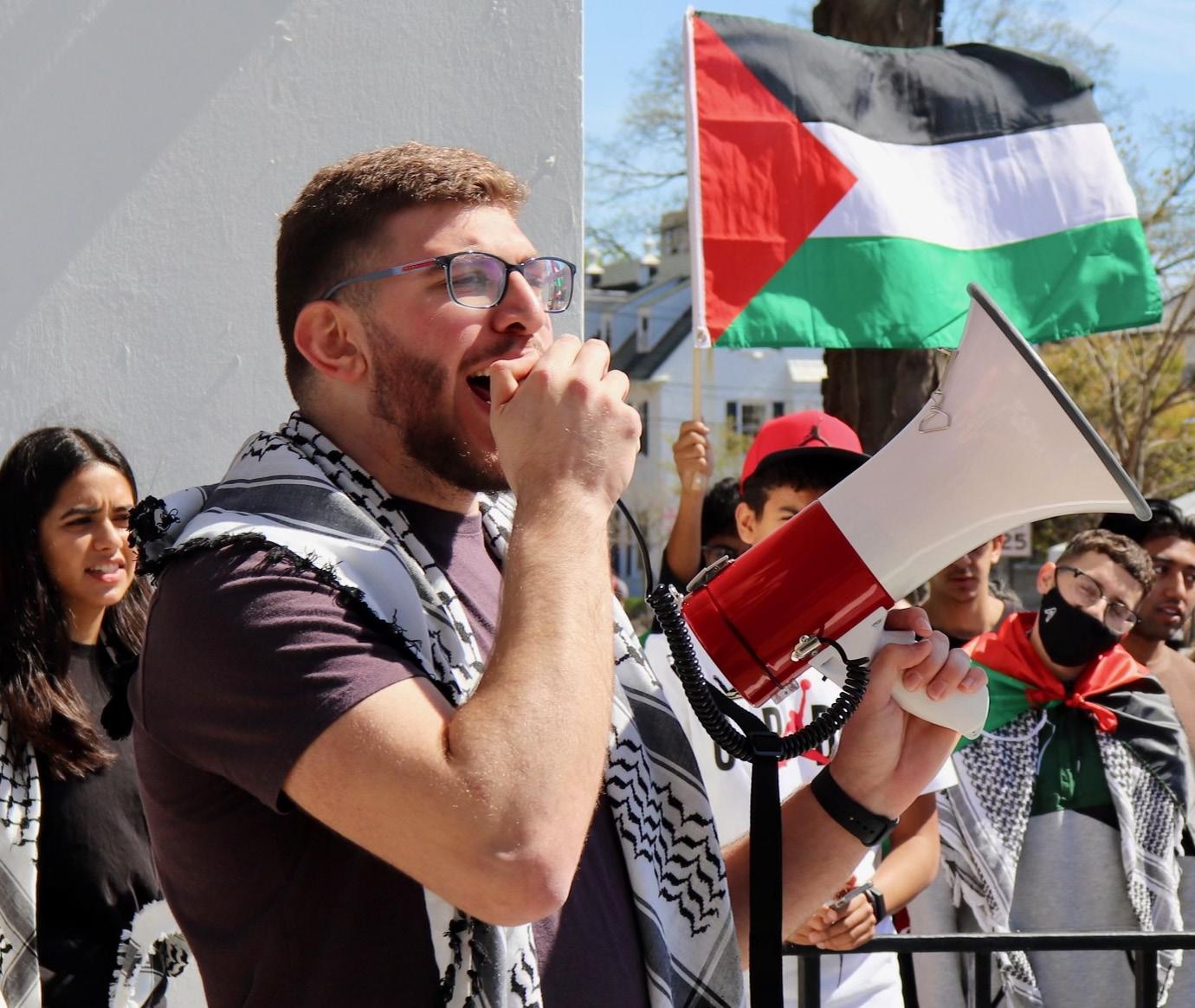
14
Photo taken by Reem Qasem
I am no longer at Rutgers–New Brunswick, somewhat because of what happened. I had to spend so much time responding to the incident that I couldn’t focus on my academics and fell behind. Finals week was around the corner at the time of the incident, and I could not mentally and physically prepare for my exams. I also took a step back from pro-Palestine activism and decided to not be as involved with SJP organizing on campus or even within my home community. I transferred to a community college and stayed away from community events to re-prioritize my academic career and mental health.
6. What steps did university officials take to investigate the allegations? Do you think they should have done more? Why do you think they didn’t?
They did nothing honestly. The incident was reported as a hate crime to Rutgers police, which is what inclined the administration to make a statement. They based their announcement solely on that report from Rutgers police. Rutgers campus police started an investigation right after, and the administration should have waited until the conclusion of the investigation to make a statement. We had to reach out to the administration and facilitate a meeting because of the attacks and harassment we were receiving (which didn’t take place until 2 months after the incident). We brought our concerns to the president and other administrators. They were not guaranteeing any support even though we explained how their reactionary statement fueled the harassment we received. They made no efforts to mediate or mitigate any of the attacks on SJP and did not offer us any protection on campus. They repeated that they wouldn’t offer us any extra protections. We also asked them to release a statement to support proPalestinian activism on campus and condemn attacks on SJP members, but they refused.
7. What advice do you have for Palestinian students hoping to make change on their campuses?
Don’t let anyone scare you or deter you from enacting change on your campus, whether they are from our community or from the opposition. If you face backlash, make sure you do not go through it alone and reach out to as many possible networks as you can.
We had Palestine Legal, PACC, AMP, IMEU, our SJP advisor Noura Erakat, and support from other individuals who were aware of the ordeal. After we released a statement rejecting the one-sidedness of the narrative and to explain the incident and how we were implicated, some student organizations shared the statement in support of us.
Many are willing to step in and help you get through it. Know when you need to take a step back and remember it’s okay to do so. You’re not helping anyone or the cause if you’re not able to function.
8. Our theme for this issue is “Speak Up.” Why is it important as a student to speak up against injustices, be it in Palestine and anywhere else in the world?
Because students will listen to each other more than they will to others. It’s important to make our voices heard because we are the most influential people. Our generation has to take on the responsibility of the struggle in the diaspora. We listen to and influence each other in ways that other generations can’t. We use the new knowledge we learn to create more positive change for all people.
15
I’m Sorry
Nada Abbasi
I’m sorry they hurt you, killed you, and dehumanized you
Man as a savage beast
Horrific godless crimes against God’s children
But tell me, what did I do wrong?
Did I hurt you, did my people hurt you?
Why did your story create my story?
We were in Palestine picking our olives
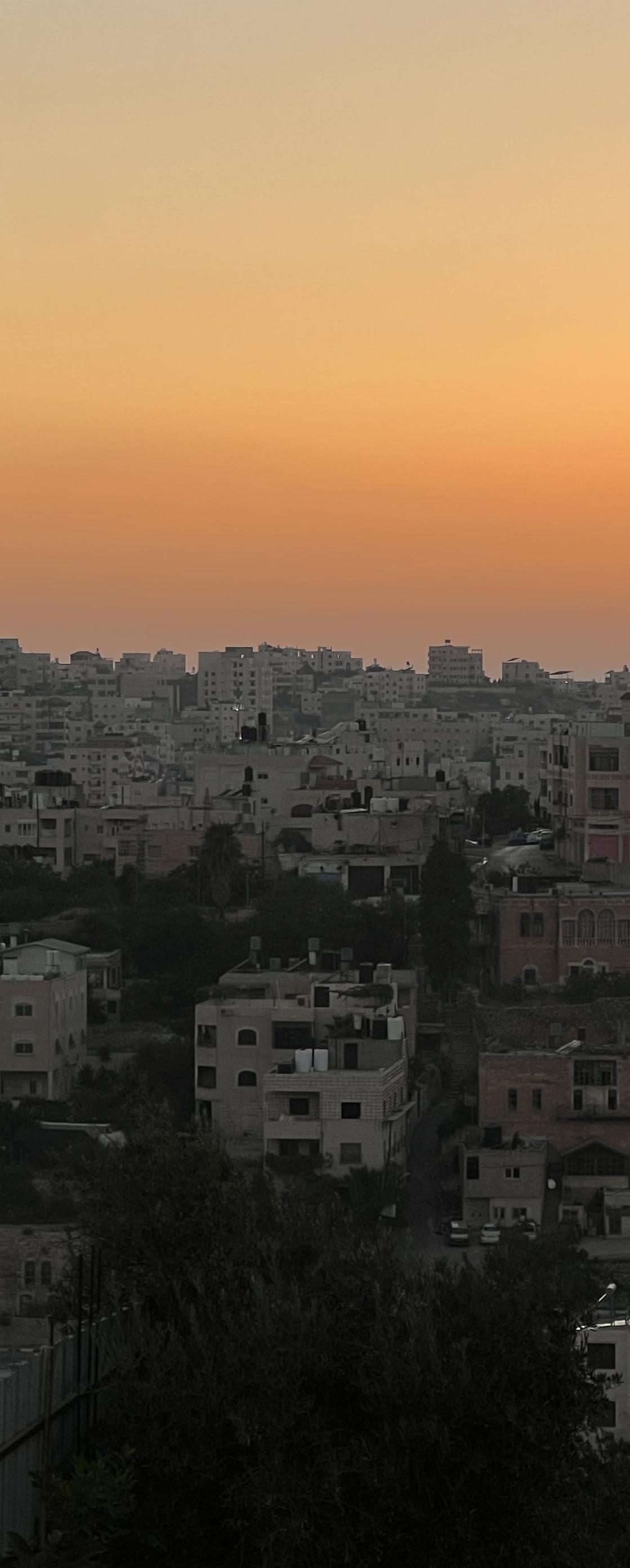
We were in our kitchens making tea with mint
We were in our churches and mosques praying on our holy days
You came to our land traumatized and forever transformed by what the others did to you Running away from persecution and the devil himself
We accepted you and welcomed you, just as we did in the Golden Ages
At ease my brother, you are safe here with us Until, you unleash your beast on us
16
Photo taken by Rania Mustafa IG: @raniamustafa1
#SpeakUp: An Ally’s Perspective
Brian Ford
I am a member of the national BDS and Palestine Solidarity Working Group of the Democratic Socialists of America (DSA), as well as the co-chair of the local version of that working group in the North New Jersey chapter of DSA. I am a high school History teacher and social justice educator. Above all else, I am a lover of humanity and a fighter for justice. It is from all those standpoints that I work for the liberation of Palestine.
Although I come to this work as non-Palestinian ally (or, as I prefer to call it, with the most positive connotations possible, an accomplice and coconspirator), I hope I do so humbly in the eyes of Palestinians. More specifically, I am white and live in the United States, the country most responsible for propping up the zionist entity’s existence. With that positionality, I believe it is incumbent upon me to leverage my privilege, be “loud and proud” about Palestine, and absorb some backlash.
I want to be clear: I am not framing my role here as a (white) savior. I am not “protecting” people whose historic resilience I am in awe of or “giving voice” to people who are far from voiceless. Rather, there are ways I can act (and spaces I can act in) that people without my many forms of privilege cannot—given the graver consequences that they may face. Palestinian comrades who I work closely with must often use great caution when considering their visibility in this movement. And while I, too, am not immune to backlash, it is not the same. At all.
The white supremacy from which I benefit every day is part of zionism, the establishment of the zionist settler colonial entity, and the perpetuation of that entity and its many crimes (though, of course, it is itself a crime). The taxes taken from my paychecks pay for the bullets killing Palestinians every day.
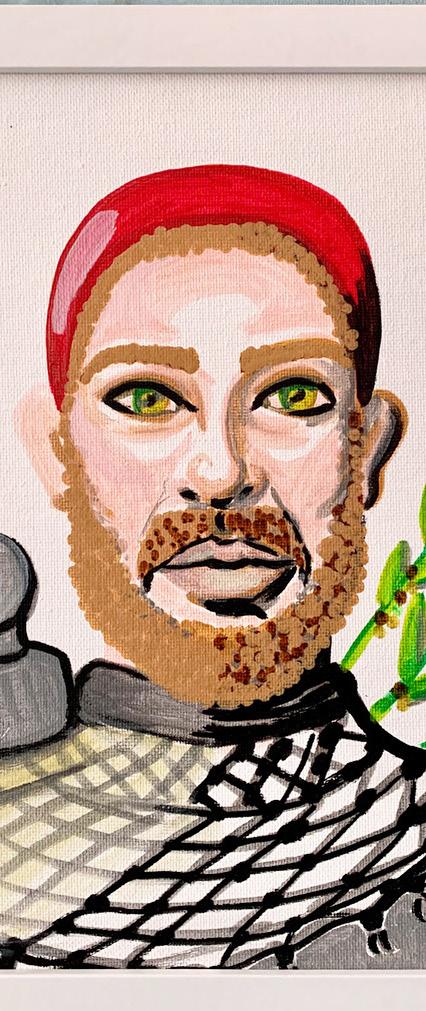
17
Artwork by Nisrin Shahin IG: @Nisrin.Shahin
The racial capitalism —that I resist daily— disproportionately immiserates people of the global majority, including Palestinians. Given this and many other reasons, one of which is simply my love for humanity and passion for justicee, solidarity with the Palestinian struggle for full liberation is a moral and political obligation—an unequivocal duty.
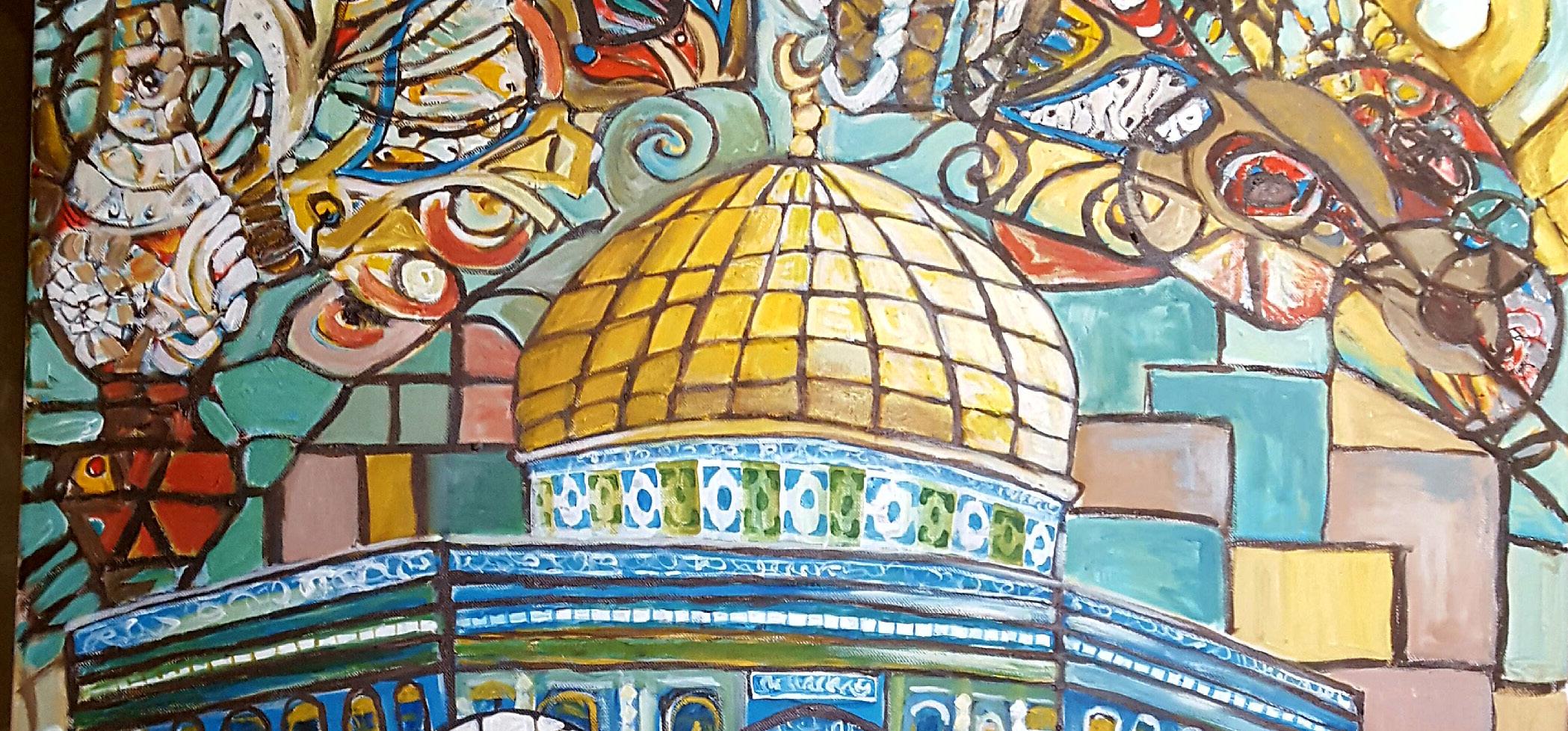
The theme of this issue is #SpeakUp. I was encouraged to share some examples of hostility and backlash I have encountered when speaking up. Before I do, I want to acknowledge these examples pale in comparison to many others’ stories, especially those of Palestinians.
I have had difficult and risky conversations with administrators about teaching the truth. I insisted to them that the Students for Justice in Palestine club I advised would not be “both sides”-ing issues and would define justice with an anti-zionist framework. Communicating this to students also generated backlash, and the editor-in-chief of a prominent Jewish news entity encouraged a student to write an op-ed about me.
When a quote of mine about my involvement in this work, mentioning BDS, appeared in a student
newspaper article about what motivates teachers outside of the classroom, zionist pressure got the article temporarily taken down (in violation of a recent state law that more expansively defines freedoms for student press). Community members called my solidarity work (and by extension me) anti-Semitic. BDS was called “a hate group.” It took a grassroots email campaign to get the school to re-post the article.
Most recently, the New York Post published a hit piece attacking Black Lives Matter At School and its curriculum team, of which I am a member, because of our inclusion of pro-Palestinian, anti-zionist materials in our new online curriculum platform. The article’s author, a member of a zionist organization attacking similar liberatory education work across the country, named me specifically, “These materials reflect BLM’s long affiliation with the anti-Zionist and anti-Semitic BDS movement. Many of these resources were contributed by Brian Ford, a teacher, antiZionist propagandist, BDS supporter and Democratic Socialists of America activist.” My name is hyperlinked to my Twitter account.
18
Artwork by Nawal Abderahim IG: @nawalabderahimart
As easily triggered as the Post is, I still saw it as a sort of badge of honor that I upset them, especially for the reason I did. I was reminded of one of my favorite old-time political songs, “You Ain’t Done Nothin’ If You Ain’t Been Called a Red.”
I can afford to be somewhat nonchalant for a number of reasons, including my positionality and of course because these examples are few and minor. But make no mistake, educators everywhere are maligned and harassed by the likes of the ADL and their ilk. They and their districts are weighed down by lawsuits and FOIA/public records requests. Two ethnic studies teachers in California recently had their tires slashed for staying true to decolonial education that denounces zionism. As one ethnic studies educator (a woman of color) told me, “This past year has been non-stop harassment and attacks for me, and it’s not slowing down. The public records requests being filed locally and at the state level are sucking up our financial resources trying to protect our intellectual property. At first, it’s a badge of honor, but it’s taken a large toll on my mental health, especially because the
attacks against me became deeply personal.”
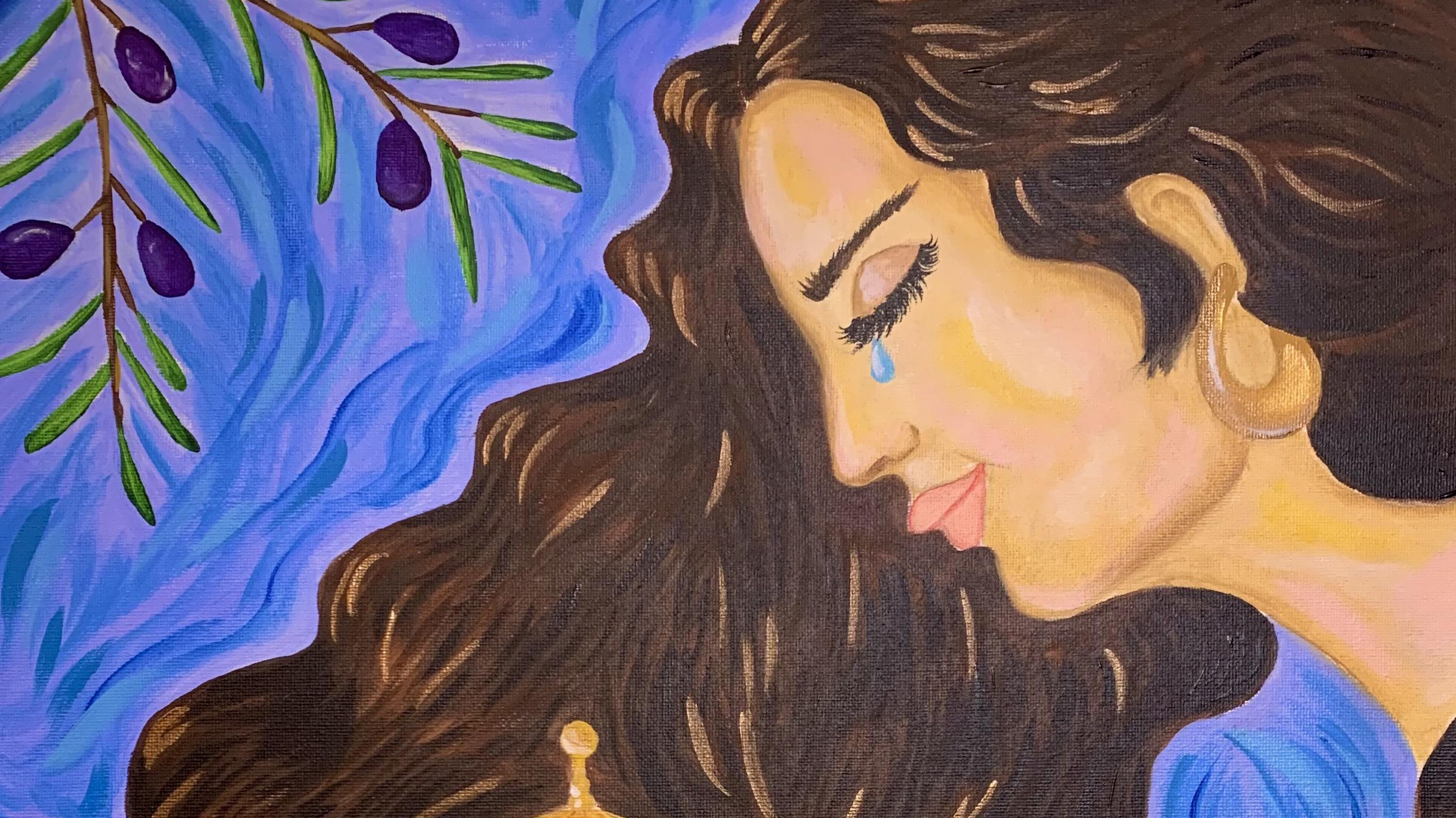
Educational and government entities in many locations are adopting the International Holocaust Remembrance Alliance (IHRA) definition of antisemitism and its deeply problematic “examples of contemporary antisemitism.” The IHRA definition erroneously conflates anti-zionism and critique of the zionist state with antisemitism. Adoption of the IHRA definition would have profound implications for human rights advocacy, Palestine solidarity work, free speech, and academic freedom.
So speaking up from my positionality is increasingly important and, in some ways, increasingly risky. But that leads me to two conclusions. First, I must continue to speak up and do so in sustainable ways in partnership with others; I am not alone. Second, it means we are gaining ground. The repression we see is that of zionists in fear. They feel the ground shifting beneath them. Speaking up is working. I will never stop speaking up about Palestine until it is free, from the river to the sea.
19
Artwork by Melina Sobe IG: @melinasobi.art
I’ll Speak Up For You Ya Baladi
Ragheda Hasan
Dear Falastin,
When they speak of you, they never speak of your beauty
Your olive trees, poppy flowers, and people they disregard
But they jump at the opportunity to twist and turn your truth
But don’t fret ya baladi
I’ll defend you I’ll speak up for you
Palestinians are not terrorists They’re freedom fighters
Your people are not anti-semitic They’re anti-Zionism
You were not a land without a people You were a land for your people
You were not a desert waiting to be bloomed Your are the rose and beauty of the Arab world
Your people did not leave They were ethnically cleansed
You did not sell your land to the thieves The thieves stole the land from you
The “conflict” is not a conflict It’s an illegal occupation
You are not the threat But the colonizers are
It’s not complicated
It’s as clear as clear can be
For they forget to open their eyes But I haven’t forgotten And I won’t forget, for as long as I live
They say the old will die and the young will forget But with every day of my unwillingness to be silenced, That myth will remain nothing but a myth
So don’t fear ya baladi You will taste the sweetness of liberation
I will not abandon you ya Falastin I will fight for you, by any means necessary
Until Freedom, Ragheda Hasan
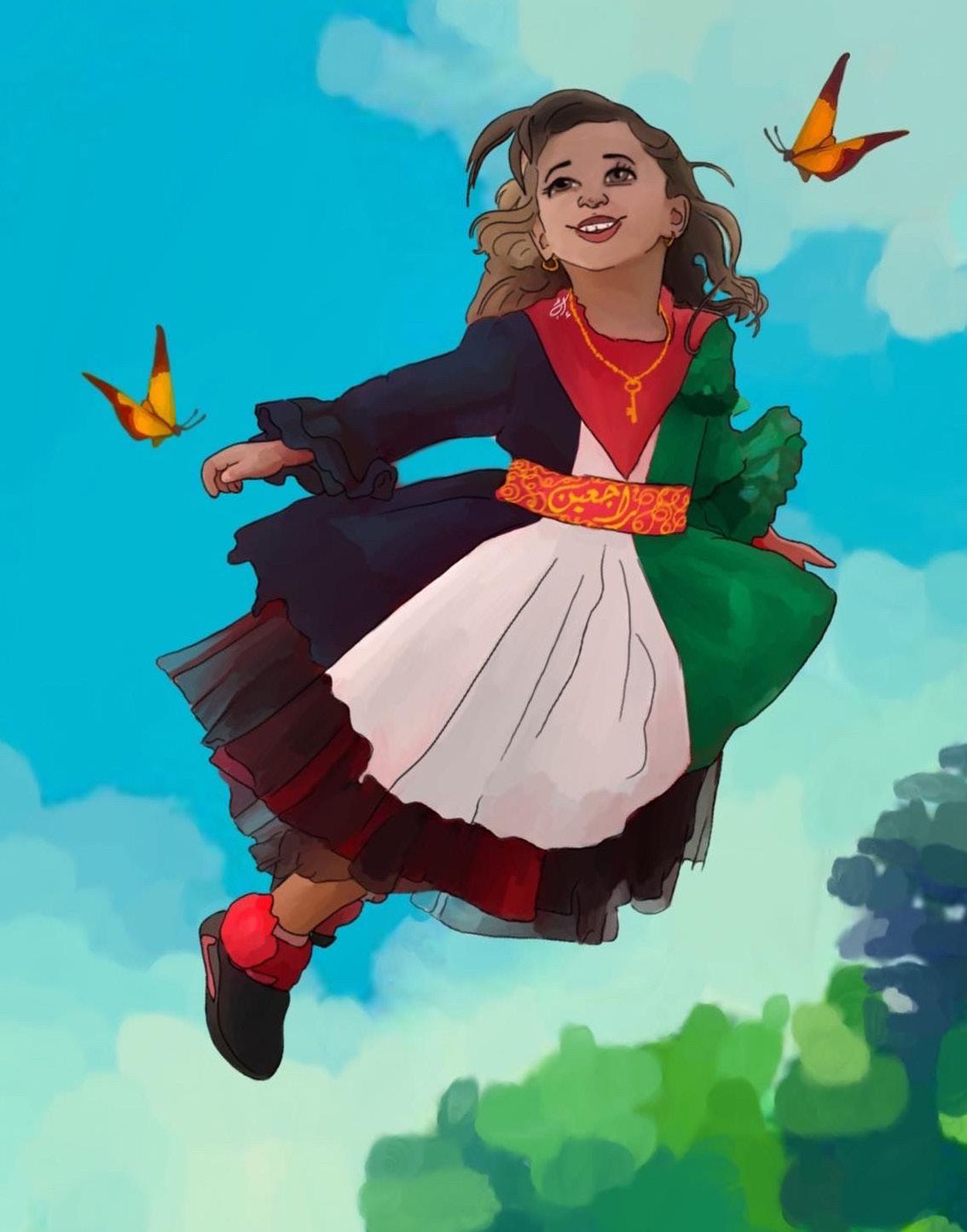
20
Artwork by Ibaa Al Rawahi IG @ibaa.ahmed
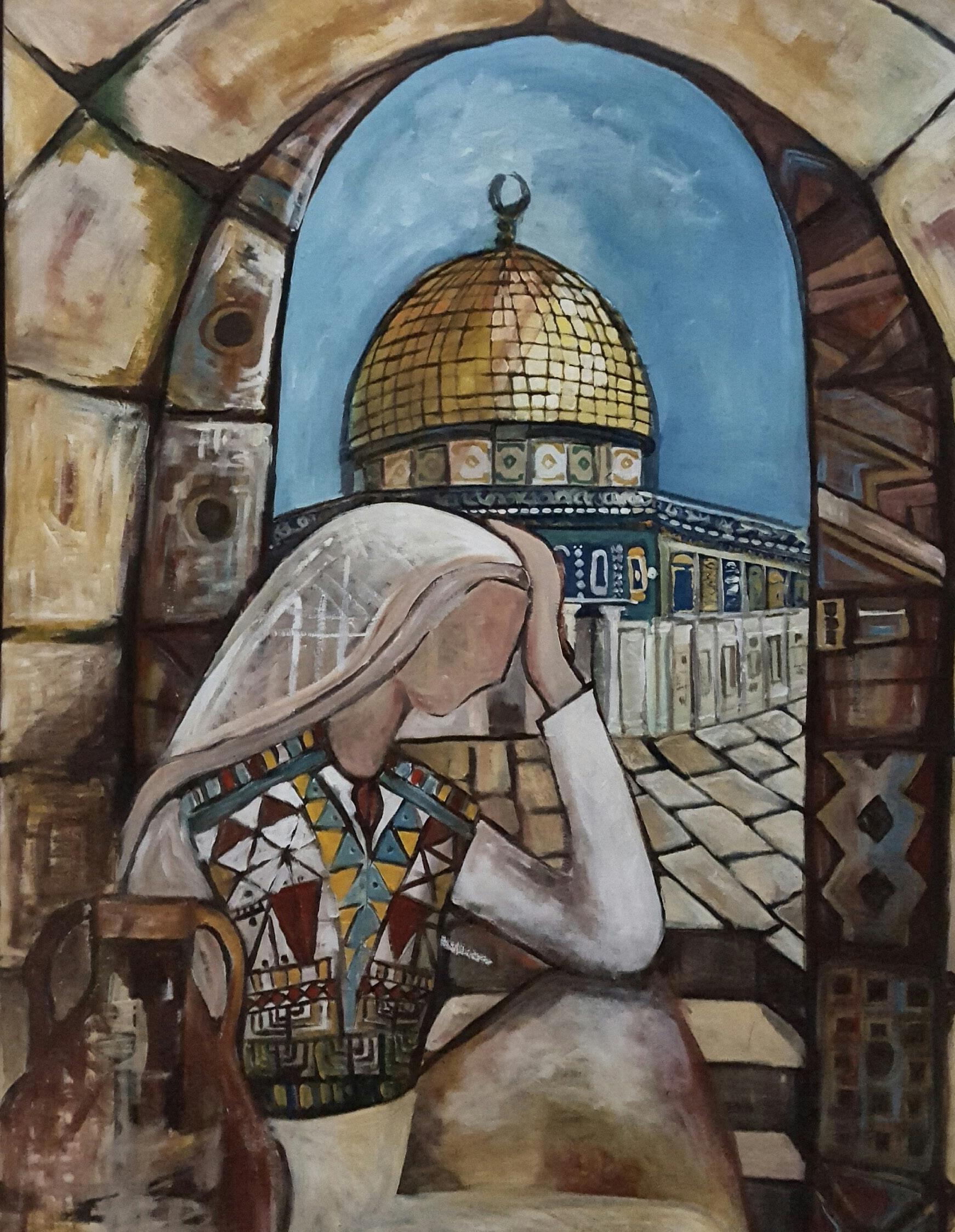
21
Artwork by Nawal Abderahim
IG: @nawalabderahimart
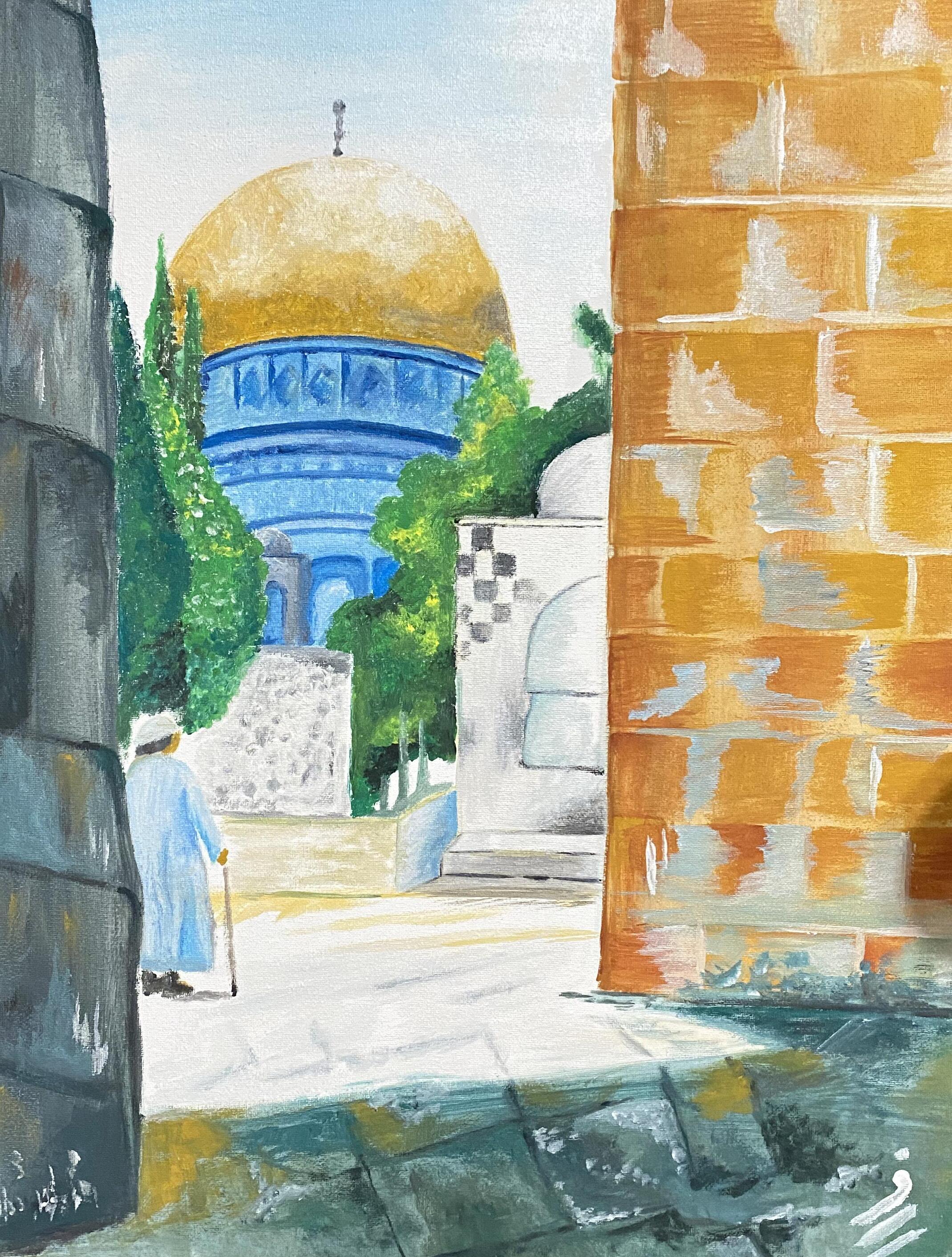
22
Artwork by Fadia Alagha IG: @fadia_aagha
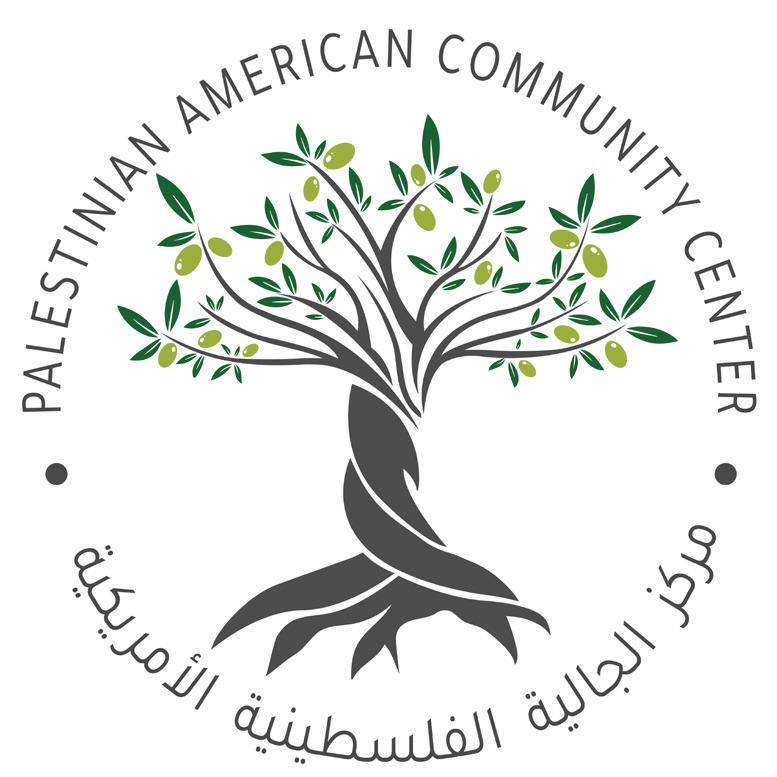
23 Would you like to see your advertisement next, contact us now. www.paccusa.org 388 Lakeview Ave Clifton, NJ 07011

24

25


26




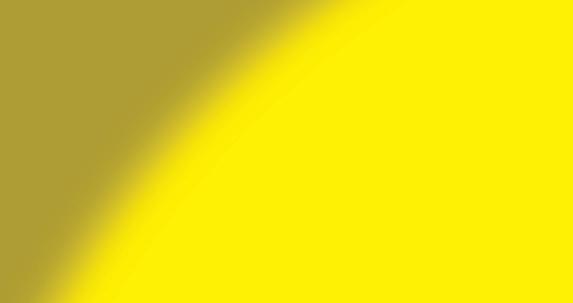


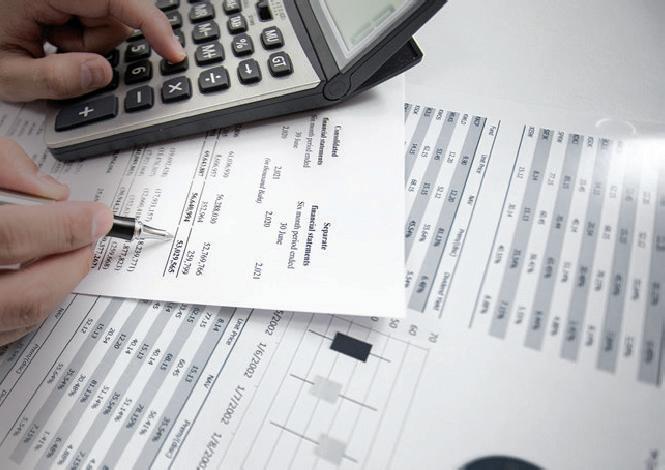
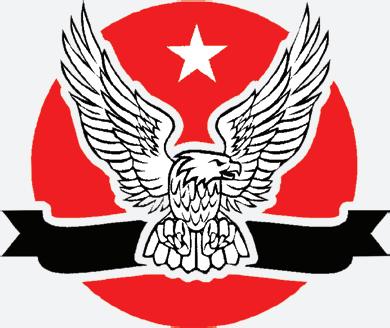

27




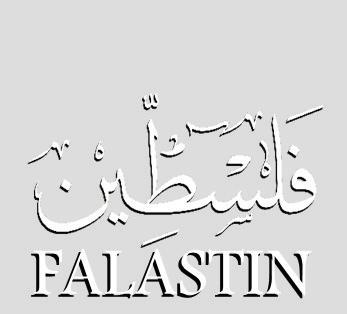
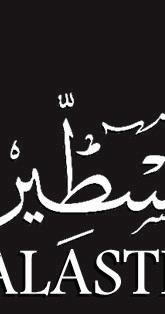
28 3









 Nada Abbasi
Nada Abbasi






























